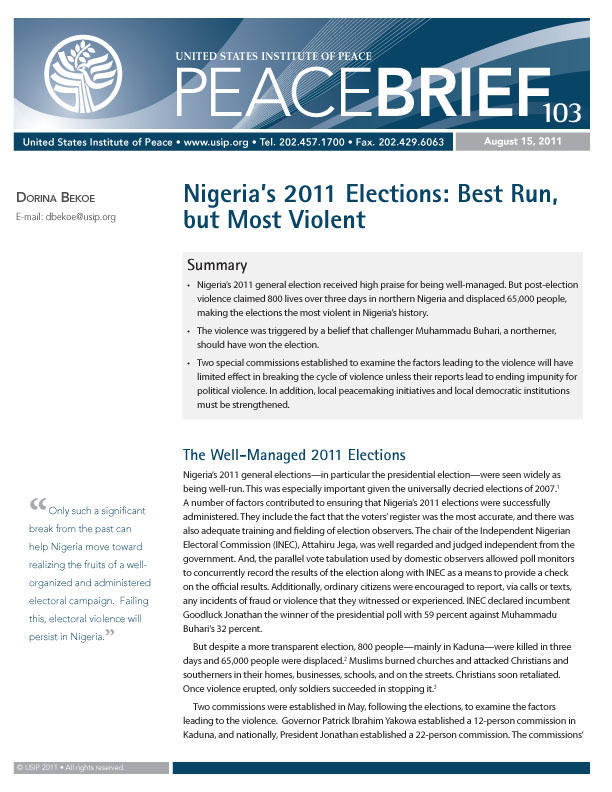Nigeria’s 2011 Elections: Best Run, but Most Violent
Nigeria’s 2011 elections were the most violent yet—claiming 800 lives in three days. Breaking the cycle of violence includes ending impunity for political violence, cultivating local peacebuilding initiatives and strengthening local democratic institutions.

Summary
- Nigeria’s 2011 general election received high praise for being well-managed. But post-election violence claimed 800 lives over three days in northern Nigeria and displaced 65,000 people, making the elections the most violent in Nigeria’s history.
- The violence was triggered by a belief that challenger Muhammadu Buhari, a northerner, should have won the election.
- Two special commissions established to examine the factors leading to the violence will have limited effect in breaking the cycle of violence unless their reports lead to ending impunity for political violence. In addition, local peacemaking initiatives and local democratic institutions must be strengthened.
About This Brief
Nigeria’s 2011 elections were the most violent yet—claiming 800 lives in three days. Breaking the cycle of violence includes ending impunity for political violence, cultivating local peacebuilding initiatives and strengthening local democratic institutions. Dorina Bekoe, the author, is a program officer in the Center for Conflict Management at the U.S. Institute of Peace (USIP). USIP supports work on the prevention of religious, economic, and political violence in Nigeria.



